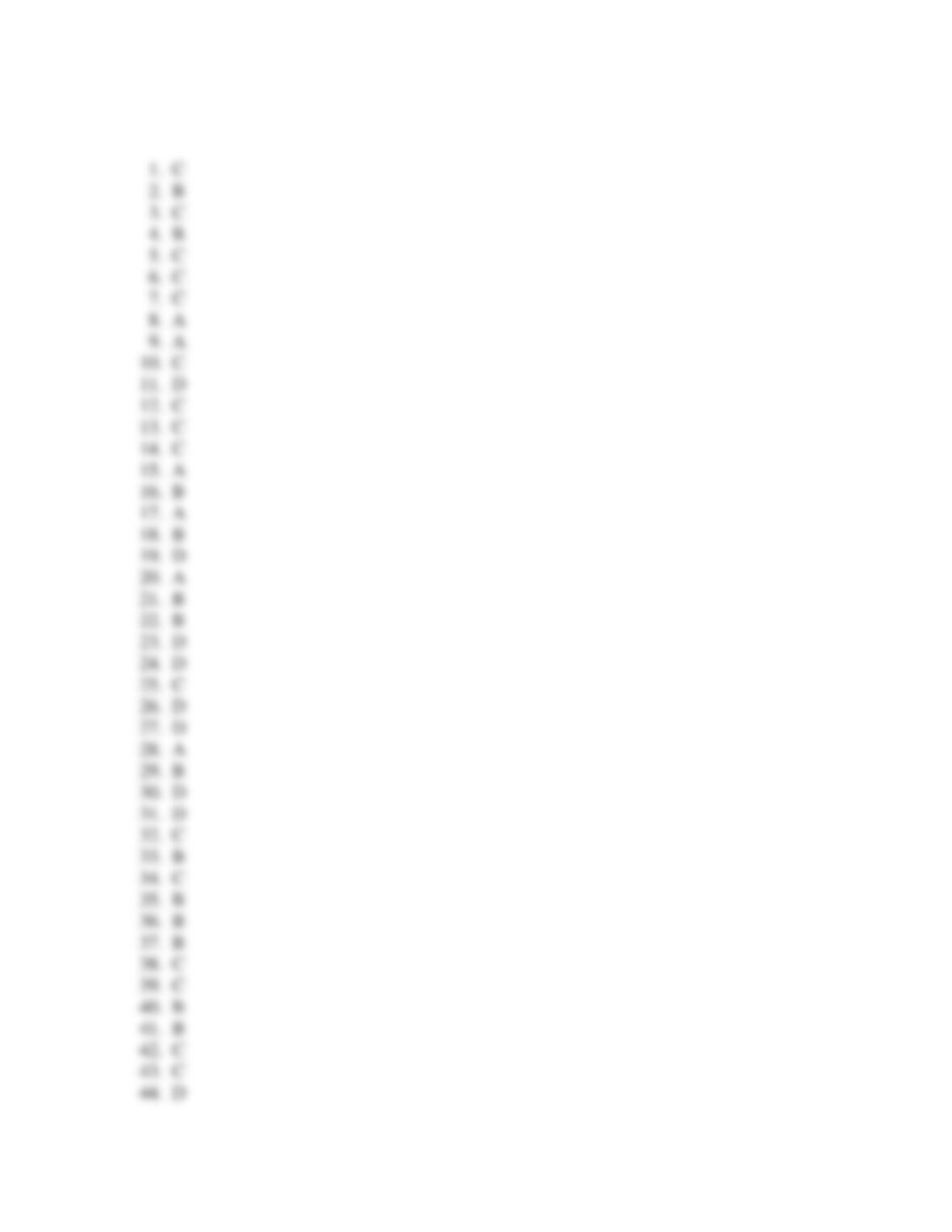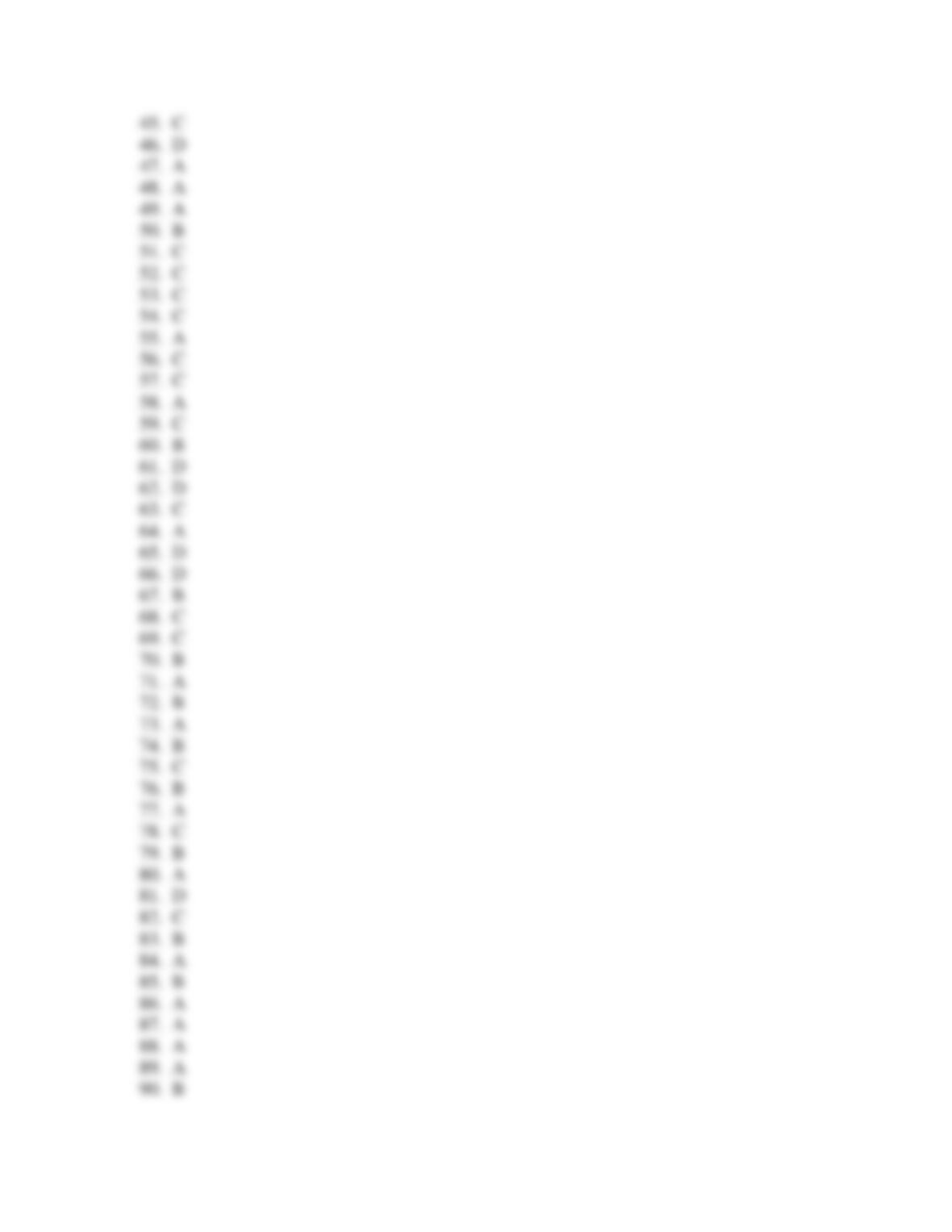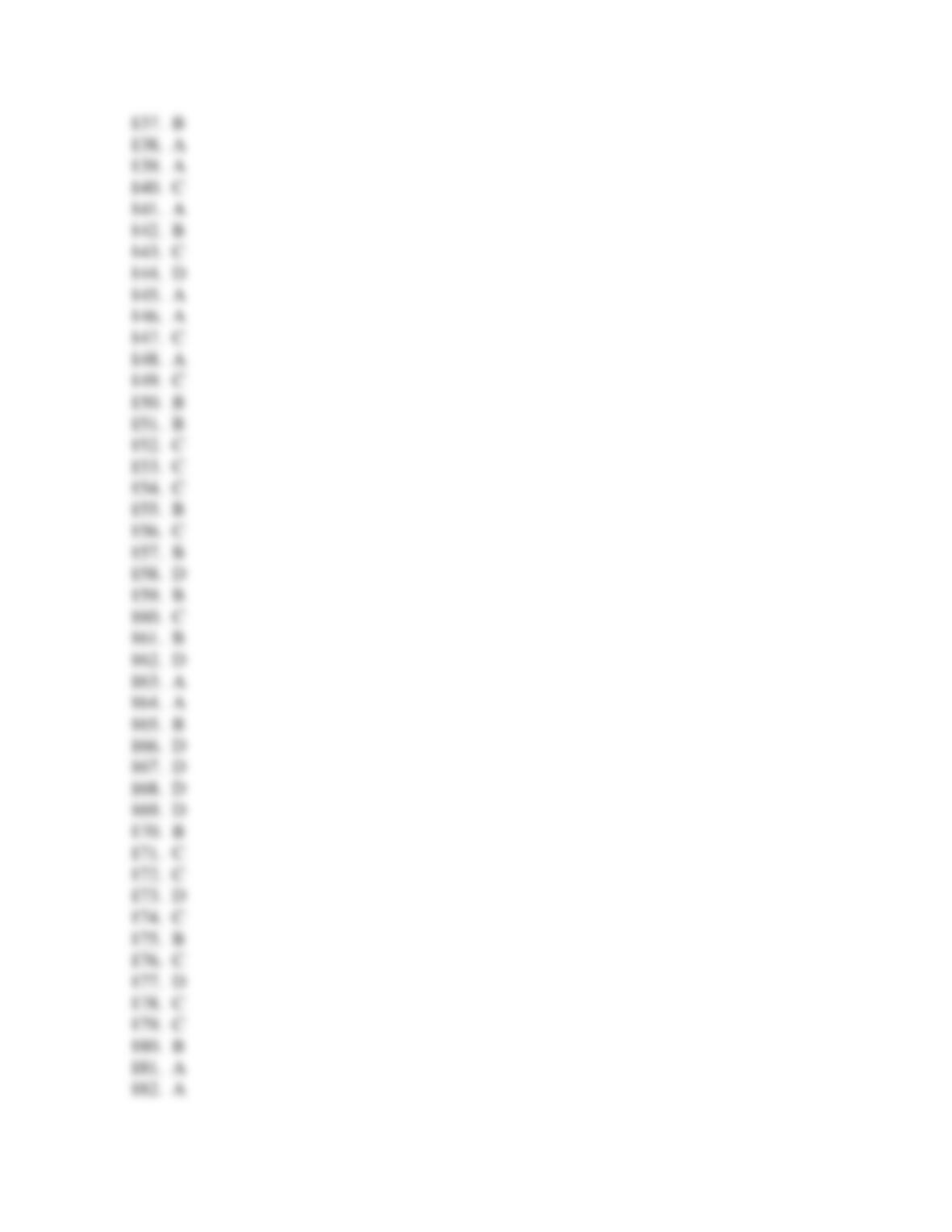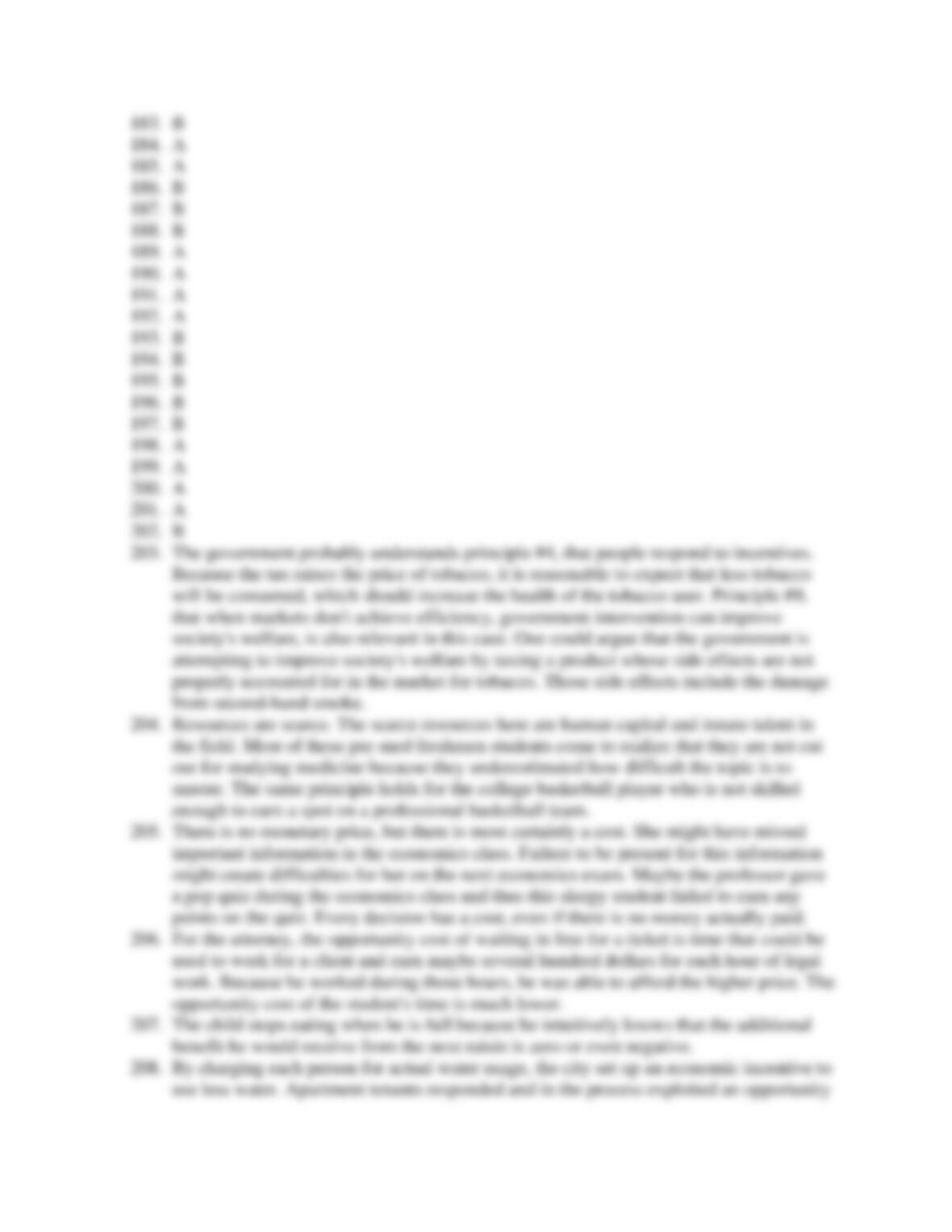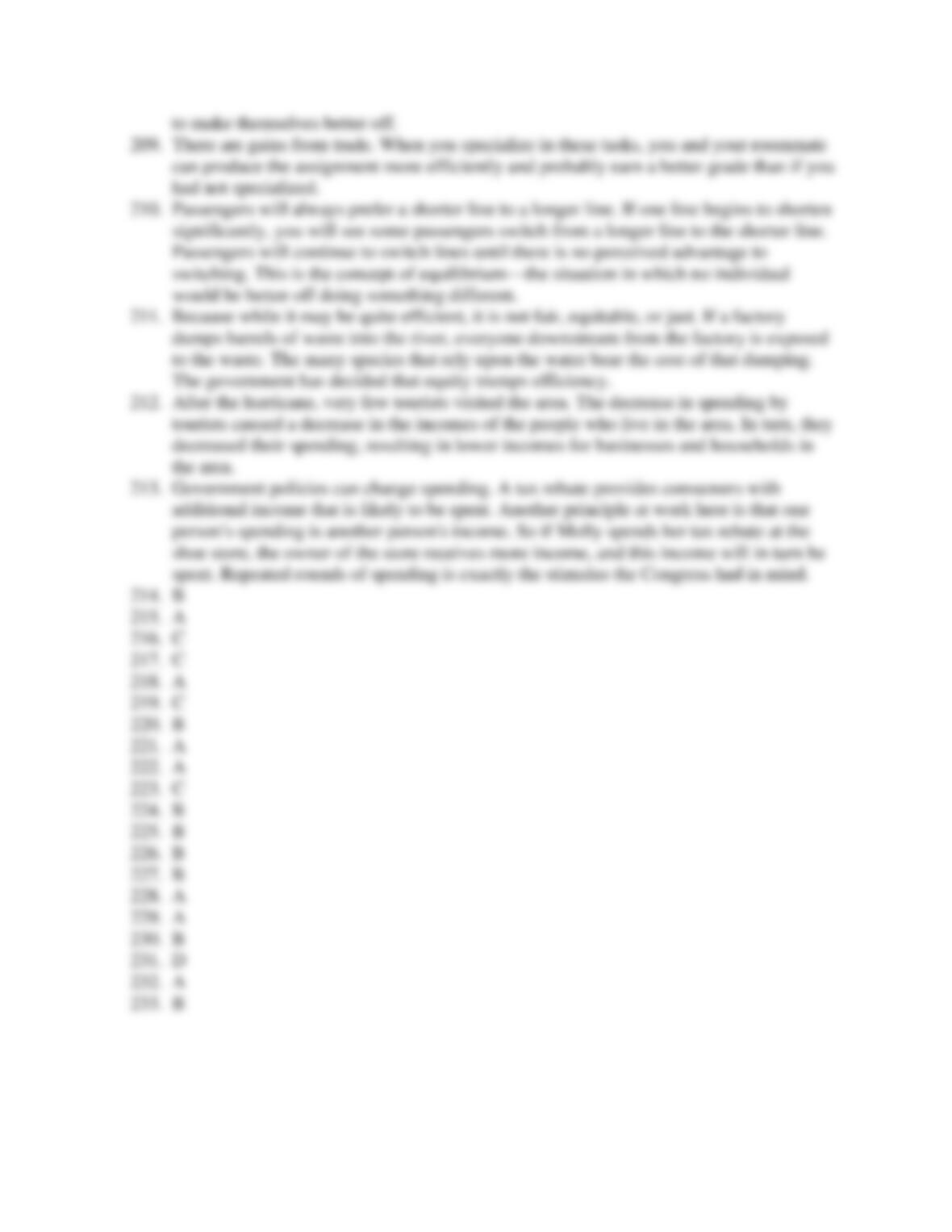Katherine has a physics exam tomorrow. However, a free lecture by one of her favorite
authors is taking place this evening. Katherine decides to attend the lecture instead of
studying for her exam. Katherine's opportunity cost is:
the time spent listening to the lecture.
not relevant, since no money is involved.
the cost of getting to the lecture itself plus the reduction in her physics exam grade
as a result of not studying tonight.
the time spent getting to the lecture.
Mr. Freezee operates a fleet of ice cream trucks that drive around neighborhoods selling
ice cream. He is trying to decide whether he should buy another ice cream truck to add
to his fleet. He determines that one more truck will add $750 to his revenue but that the
truck will also increase his costs by $1,000. Based on marginal analysis, Mr. Freezee
decides:
that he should not purchase the truck, since the costs outweigh the benefits.
that he should purchase the truck, since the benefits outweigh the costs.
that he should purchase the truck, since his profits will rise by $250.
to purchase several trucks with the same costs and benefits.
Julie is getting ready for final exams. She has three exams during the first three days of
the exam period. To prepare, she has outlined a schedule that includes reviewing for her
first exam on one day, her next exam on the following day, and her third exam on the
third day. On each day, she has also allocated some time when she can watch TV or
basically do nothing. Which best explains why Julie provides some time for leisure?
Julie is not that smart and cannot study that long.
Julie is slacking off and will most likely fail all of her finals.
Julie realizes that there are benefits to leisure time that outweigh the costs of
constant studying.
Julie does not understand the importance of studying.
A popular train station has free parking for commuters who take the train. This often
results in many people being unable to find a parking spot and missing their train. To
solve this problem, all commuters should be:
given a parking pass along with their ticket.
required to pay for parking.
able to purchase an annual pass which allows them to park at the train station.
exempt from parking lot fees.
